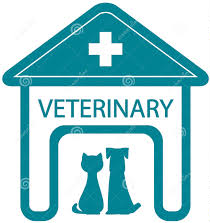Common Illnesses
Do you feel that your dog or cat might be sick? Are you wanting more information on common illnesses of dogs and cats?
Please do not attempt to diagnose or treat your pet without consulting your veterinarian. A dog’s and/or cat’s body responds to illness in a limited number of ways, therefore many very different diseases can exhibit the same or a similar set of clinical signs. There are many good resources on the internet but you CAN NOT believe everything that you read and not all sources are unbiased. Please ask your veterinarian if you have any questions.
Your veterinarian is trained to use a combination of your pet’s medical history, clinical signs, physical examination and diagnostic testing to determine the proper course of treatment for your pet. Not all pets can be treated in the same way, some medications should never be mixed together, and many home remedies or human medications can be damaging or even fatal to your pet. We recommend that you call SouthPaw Animal Clinic prior to administering any medications or treatments to your pet.
If your pet is experiencing any of the following signs of sickness, please call SouthPaw to set an appointment: lethargy, coughing, sneezing, wheezing, vomiting, diarrhea, accidents in the house or outside the litter box, licking, chewing, scratching, changes in drinking or eating habits, weight gain or weight loss, sores, wounds or rashes, hair loss, changes in the appearance of the eyes, discharge from the eyes or nose, shaking of the head, scooting, seizures, weakness, paralysis or any other abnormal signs. We want to help your sick dog or cat feel better!
Common Illnesses in Cats
Asthma – common signs include coughing, vomiting of bile or white foam, wheezing, blue or purple color to tongue, vocalization and difficulty breathing
Allergies – sneezing, licking, chewing, areas of hair loss, sores or rashes, drainage from eyes or nose, vomiting, diarrhea
Chronic Kidney Disease – weight loss, can have good or bad appetite, increases or decreases in urination, vomiting, may drink excessively or not at all, lethargy, diarrhea, poor hair coat
Diabetes – weight loss, very hungry, increased urination, litter stuck to feet, vomiting, diarrhea, increased drinking, poor hair coat
Gastroenteritis – vomiting, diarrhea, decreased appetite, lethargy
Hyperthyroidism – vomiting, diarrhea, weight loss, increased appetite, increased drinking, changes in attitude, poor hair coat
Urinary Tract Infections and Blockages – urinating outside the box, blood in urine, crying in or around the litterbox, producing small amounts of urine or inability to urinate – *Note: a urinary blockage is very serious and can be fatal. If your cat is unable to urinate, get medical help immediately!
Common Illnesses in Dogs
Addison’s – lethargy, weakness, vomiting, diarrhea, decreased appetite, trembling, collapse, increased thirst and urination, abdominal pain
Allergies – licking, scratching, chewing, areas of hair loss, sores or wounds, eye discharge, coughing, vomiting, diarrhea, ear infections
Anal Gland Issues – scooting, fishy smell to pet, discharge around anus, licking of bottom
Cushing’s – increased appetite, increased drinking, increased urination, weight gain, pot belly, hair loss, skin issues
Diabetes – increased drinking, increased urination, increased appetite, weight loss, cloudy appearance to eyes or sudden blindness
Ear Infections – shaking head, scratching ears, smelly ears, discharge or dirty appearance in ears
Gastroenteritis – vomiting, diarrhea, abdominal pain, gas, decreased appetite, lethargy
Hypothyroidism – weight gain, decreased appetite, decreased activity level, hair loss
Urinary Tract Infections – frequent urination, accidents in the house, blood in the urine




